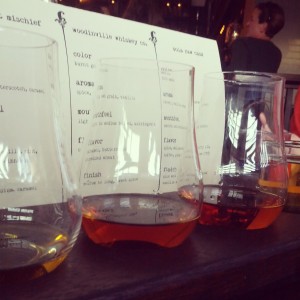Each fall semester I teach a number of information literacy sessions for freshmen in RSP 101: Introduction to the Culture of Collegiate Life. For the past two years, one of the faculty preceptors for this course asked me to focus on academic honesty, plagiarism, and citing sources. His class session is always one of my favorites. I love a good debate and nothing seems to fire students up like the topic of academic honesty and plagiarism. It’s a chance to witness confirmation bias at its finest; unless I reaffirm what a student already believes as academic honesty and plagiarism, they fight back.
Creighton University’s College of Arts & Science has a six page policy outlining academic honesty. One of the examples of academic dishonesty is “misusing academic resources.” I included this in my presentation and asked students to think of examples of what activities might fall under this ambiguous phrase. After students volunteered a series of examples, the faculty preceptor asked a very interesting question, a question which I have been thinking about for several weeks. He asked, “Could the use of a reference librarian ever fall under this category?”
After much thought, I remembered a student who recently came in for a research appointment. He had an unrefined topic for a political science literature review. All he told me was that he was writing about the causes of war. When I attempted a reference interview, he refused to give me anymore to go off, insisting that his professor wanted it to be that broad. So i showed him a few databases and how many search results he would get with such a broad topic. I urged him to narrow it down and offered a few suggestions based on the results we found. As I prepared to send him on his way, he said this to me:
“I’m confused. I was told that if I came to a reference librarian, you would find all of my sources for me.”
The student needed 20 sources, I helped him get started with about 7. (As a side note, the student and I were both on a time crunch – we only had 20 minutes together.) Now, there are few things that irritates me more than a student who blurts out the untold secret. Sure, we help students find articles, but when you need 20, we’re not going to sit there and handpick them for you. We’re going to give you the skills and tools to discern between the results yourself.
Then I compared this to the student who comes in asking for help that only needs 3 or 4 sources. Usually, we help them find all of their sources. Are we entering a grey area of academic honesty? Are we misusing academic resources – the resources being our own expertise?
After much thought and discussion among my colleagues, I’ve come to the conclusion that the occasion of crossing the line into academic dishonesty is rare. The distinction aligns with the teaching mission of reference. We are working with the student, not for the student. We’re showing them how to search effectively. We’re not telling them how to use the information we help them find. We’re not working in a vacuum. We’re helping them learn the research process. We’re making them information literate students. Rare is the case that the librarian does it all for the student.
I’m aware this is a grey area. Some may think that we need to help the student find the 20 sources; however, I feel as though that’s ultimately doing them a disservice. As a librarian, we are professionals and must use our best judgement to determine how far we’re comfortable pushing the line between academic dishonesty and genuinely helping a student.
I think of this line often and I know where it’s placed in my mind. Whenever I work with a student, I’m very aware of how close we get to that line. And I know that it’ll be crossed occasionally. As a librarian, I want to help students succeed on their own and know it’s OK to ask for help, but they also need to learn to work with me.


